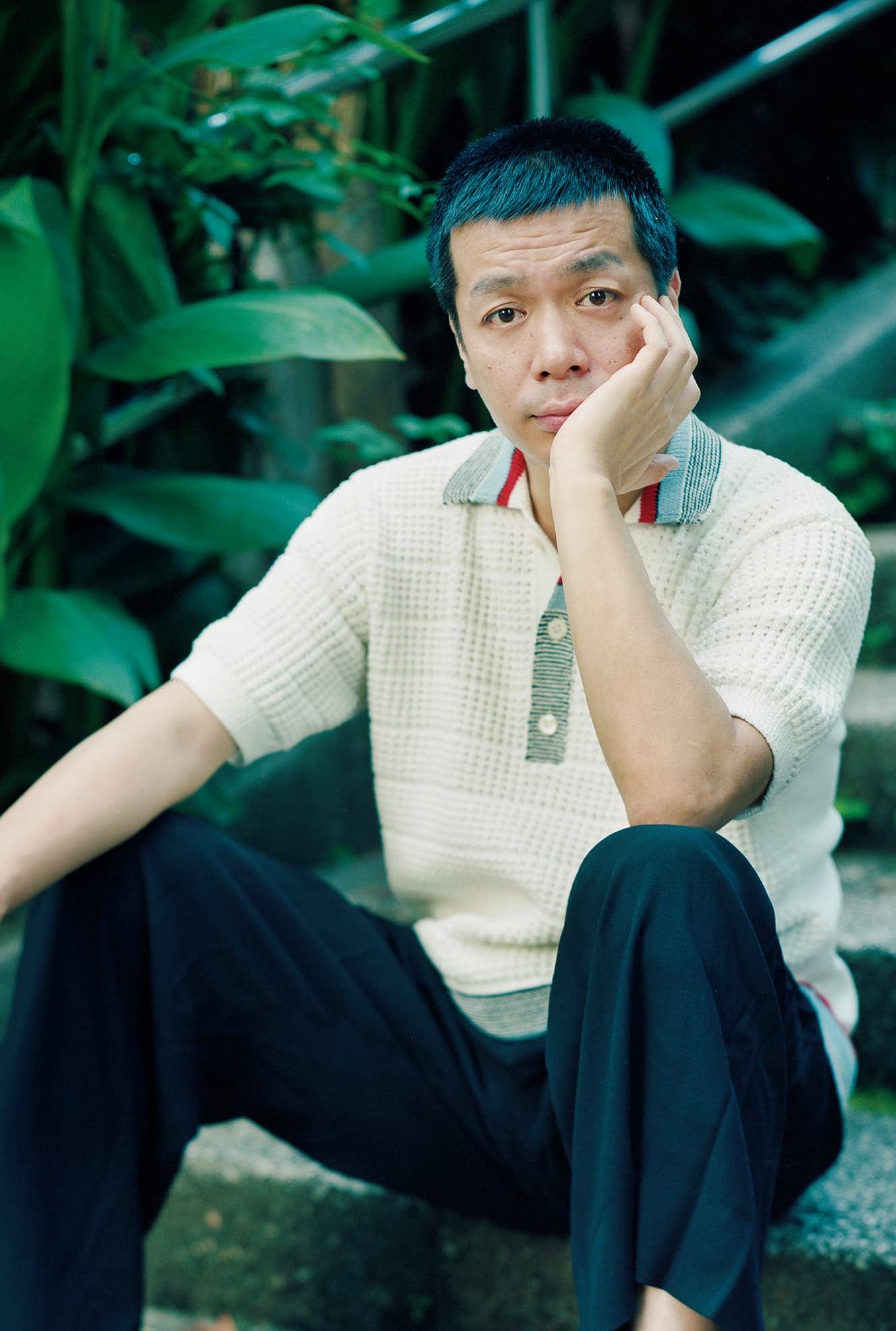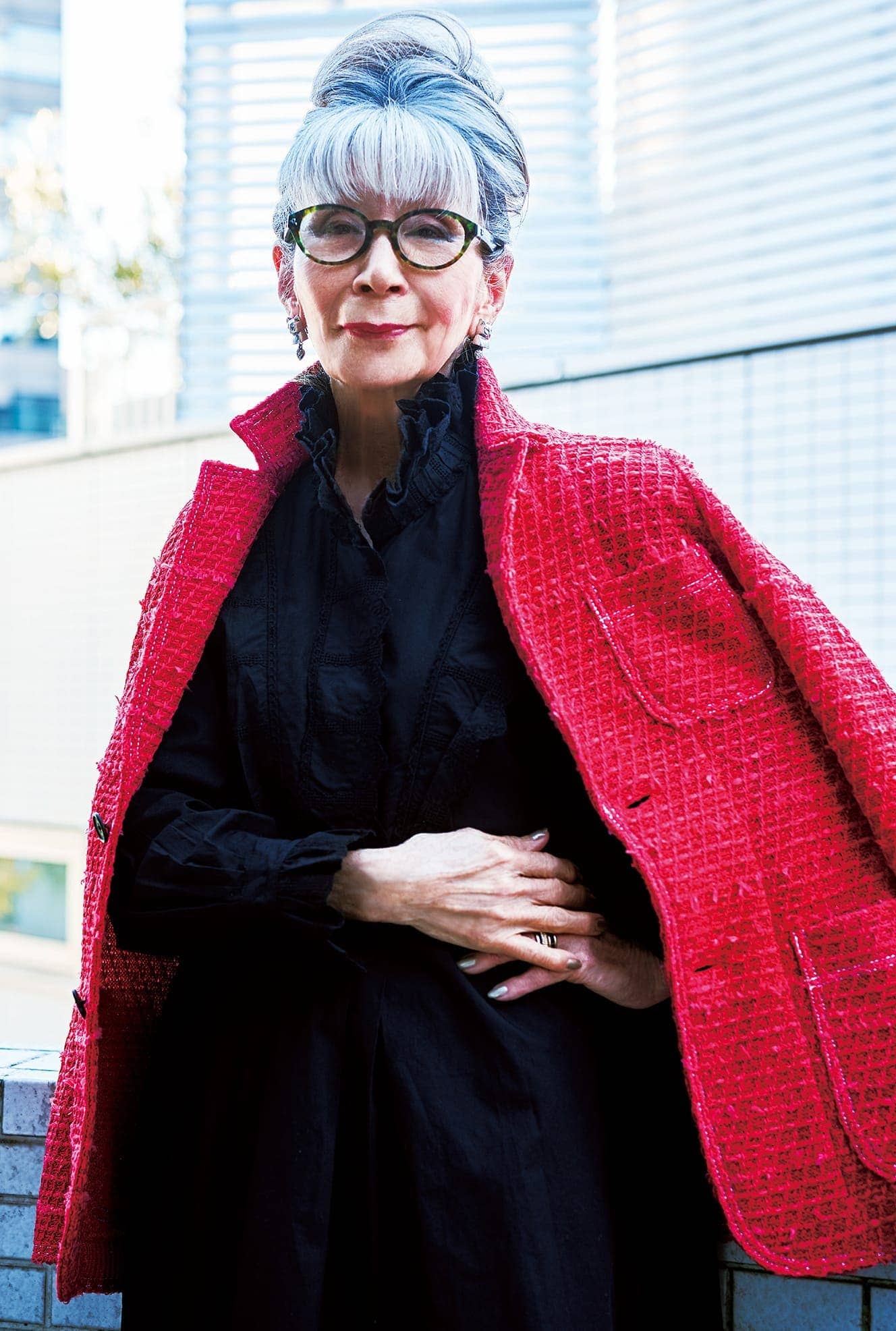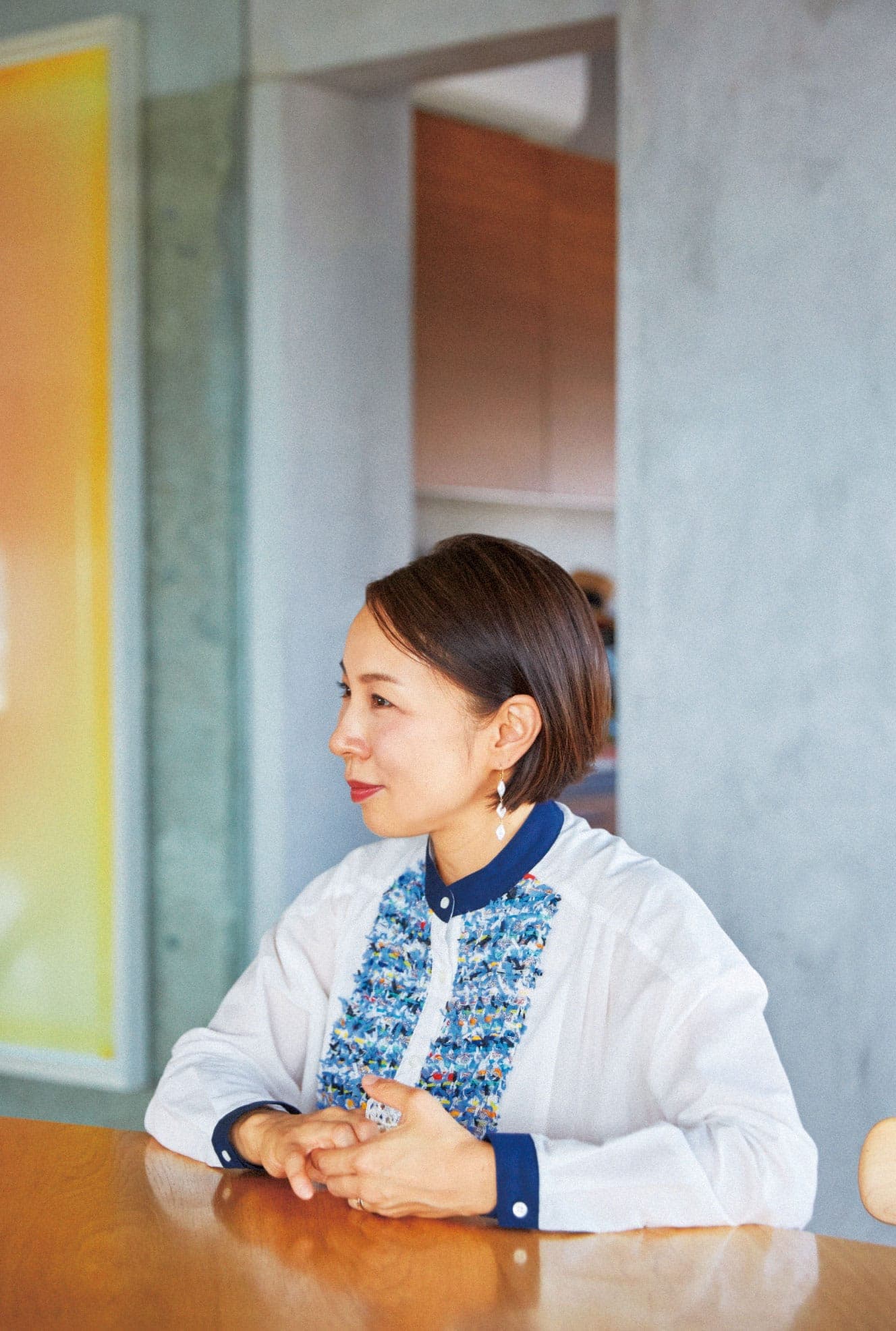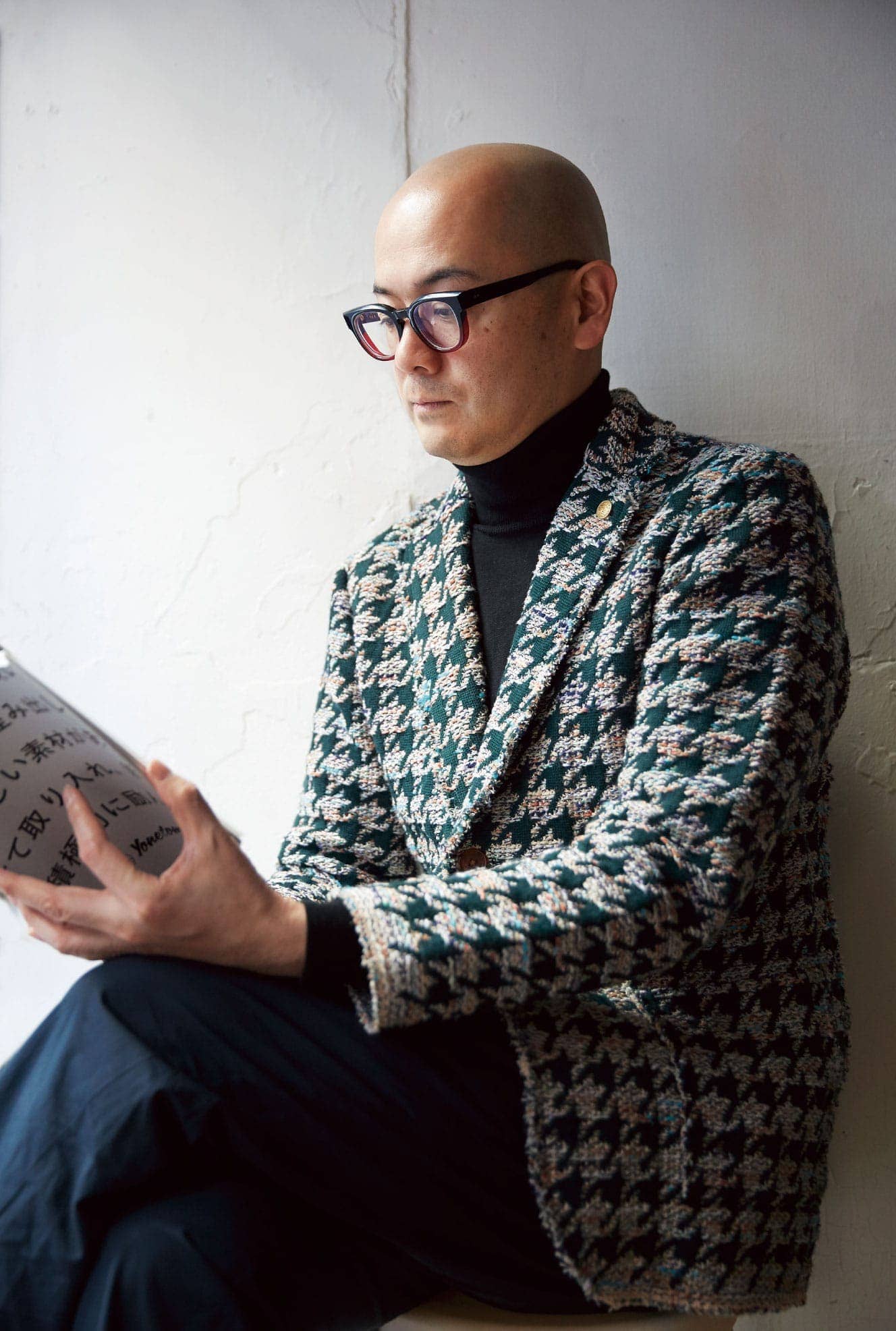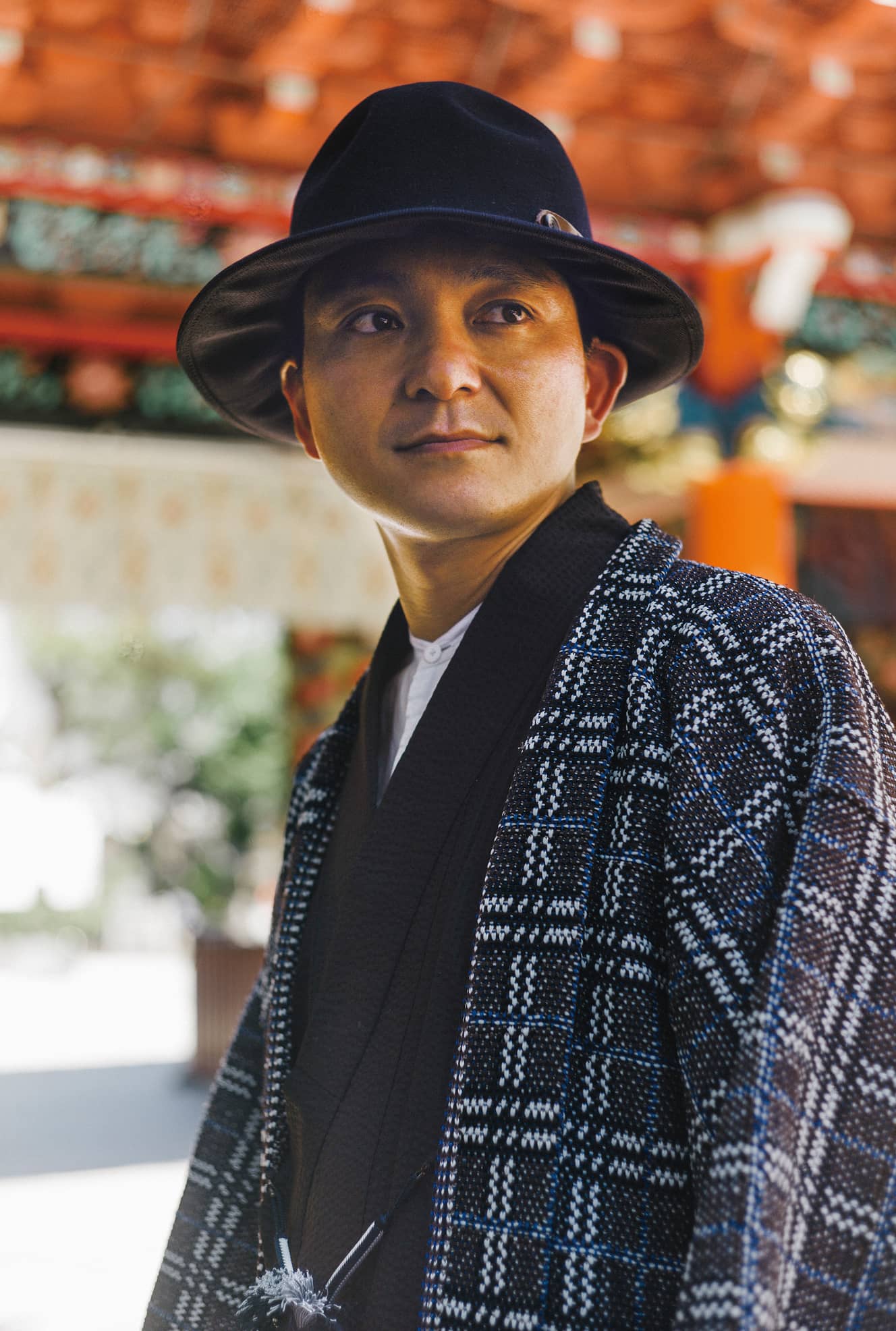
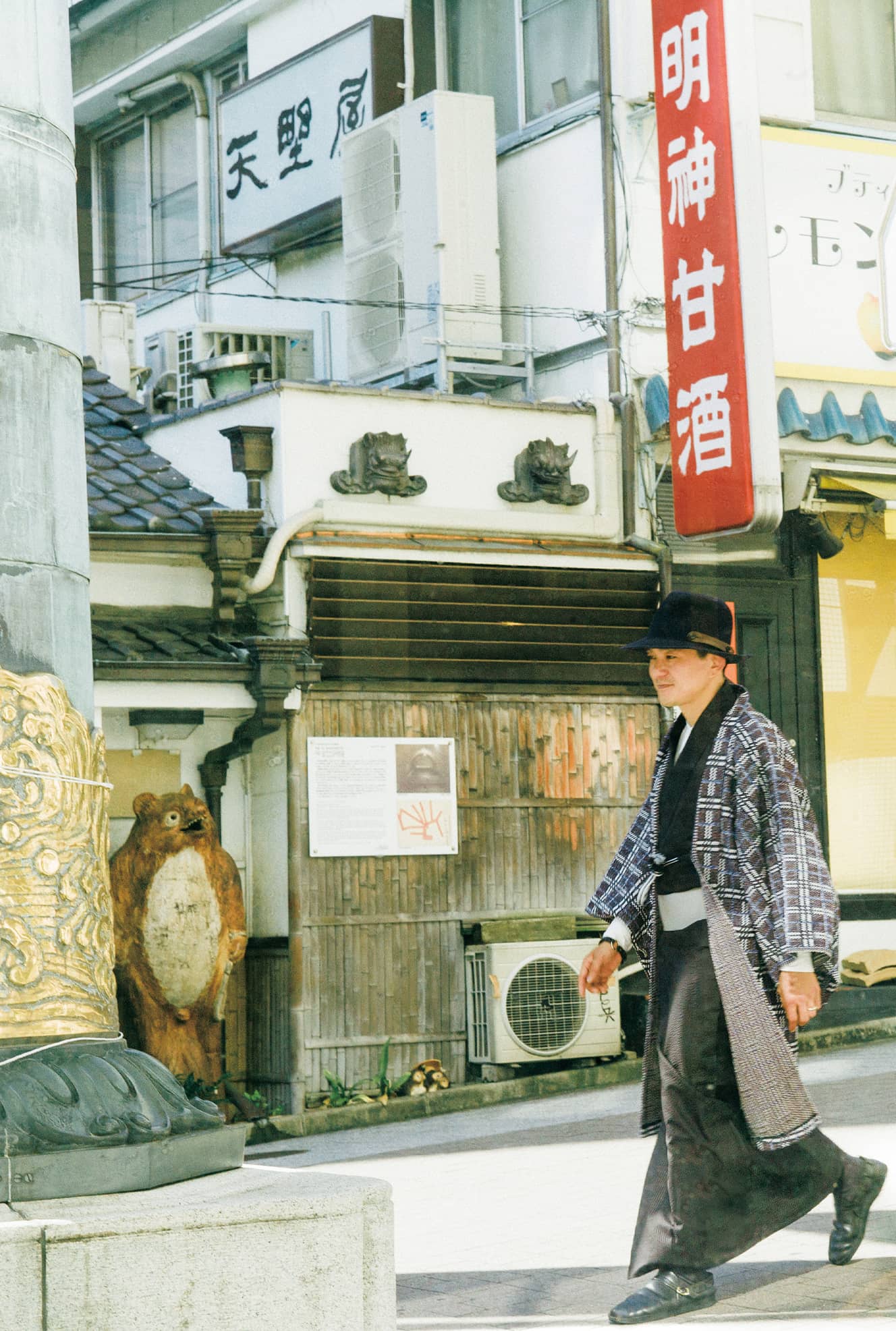
TAKAYUKI YAJIMA
President and Representative Director, Yamato Co., Ltd.
Takayuki Yajima was born in Tokyo in 1982. He has engaged in professional collaborations with many companies including Snow Peak, T-Michael, and COOHEM. In April 2020, he made emergency loans available to regional companies in the kimono industry in advance of public relief funds provided by the government. In June, he began an original upcycling incentive allowing individuals to trade unused kimonos in for Yamato gift certificates, and he plans to continue with such efforts.
It’s an ordinary day in June. At this time in any other year, Takayuki Yajima, President and Representative Director of Yamato Co., Ltd., would be in Paris, or perhaps Florence. Today, we had a chance to talk to him at Y. & Sons, a bespoke men’s kimono tailoring shop quietly located near the Kanda Shrine entrance gateway.
It is our duty to convey spirit and tradition, and to give things a soul. We also recognize that it is people who make up the landscape of our cities. As a company which helps to clothe these people, we are responsible for helping to create this landscape.
I think that right now, the essential nature of things is being questioned. Until this point, the word “fashion” has basically been used to mean a consumable good, and “sustainability” has come to be used by many companies as a promotional tool. However, this current crisis has brought our traditional capitalist society, one premised upon increasing sales and revenue, to an end, and we have been forced to reconsider the true meaning and significance of “sustainability” and will likely find ourselves compelled to steer our society in the direction of a new, circular economy. Supplies from overseas are no longer arriving, and while this has made me painfully aware of how dependent we are upon China, I have also developed a new appreciation for our regional companies. I realize how grateful we should be to have such manufacturing sites within the visible landscape, within the sphere of our daily life. There are so few things that we can truly do alone, and people are always helping each other, and doing things for each other. When we and our associates were told to suspend our business activities, our garment manufacturing factory spoke up. “We can make masks,” the people there said. This would be good for the factory, and would also benefit many other people, and the factory immediately began its production of masks and was able to begin supplying them far earlier than the government’s mask distribution. This was not a dry agreement between business partners, but something which arose from a personal connection, and all of the masks made at this factory were individually hand-sewn by kimono tailors. We value our relationships with these regional companies, relationships between employees, relationships with our clients, and our overseas relationships. We also believe in the infinite possibilities of the kimono, and we see ourselves as “a company crafting kimono that bring dazzling dreams to life.” You can interpret “dazzling dreams” in various ways – this can involve giving people something to look forward to and feel positive about, or it can be about helping our society become one in which we are not forced to take on risks by others, but can instead take on our own challenges at our own risk. However, the present coronavirus crisis is causing frustrations with no outlet and anxieties with no visible resolution to well up inside us, which is bringing about a growing tendency to reject relationships with others rather than accepting them.
I would, however, like to ask you to recall a certain scene we saw around our towns and cities about three months ago, when Japanese school graduations would customarily have taken place. While all such celebrations were cancelled, we still saw some female students dressed in the traditional hakama graduation costume around this time – and the sight of this made me very happy. And I think that any Japanese person would have felt the same way. Anyone who has been to Japan has seen people garbed in Japan’s traditional kimono garments, with their seasonal themes and characteristics. This is something unique that you can only see in this country, only here in Japan. Not only Japan, but every region and every nation has its own distinct character and culture, and our respect and acceptance of each other is based on a recognition of this – and I will continue to believe that this is the way for us to eliminate discrimination and conflict. Tradition is something which is continually moving steadily forward, in tandem with the environment of the times, and this is what enables it to endure. Conveying images of what was in our past is nothing more than telling old stories of past traditional lore. This is true for kimono, and culture, and our society. To advance into the future, things must change, little by little.
Finally, I’d like to talk about one thing which is very important to me. This is not allowing myself to be satisfied with the knowledge and information I happen to have at hand, but making the effort to get out and find things out for myself. I of course visit regional companies in Japan, but I have also flown to Brazil to personally check whether a certain silk thread was suitable for use in kimono. And I also make the effort to meet people. It doesn’t matter what their age, gender, or nationality is, or whether I can speak their language. If a book makes a particularly strong impression on me, I’ll sometimes make a trip to meet the author. It is important to get out there, to meet people, and to read all the books you can lay your hands on. If you have open ears and an open mind, you will discover that everyone – from children, to new employees, to anyone else – will always have something to teach you.

TAKAYUKI YAJIMA
Takayuki Yajima was born in Tokyo in 1982. He has engaged in professional collaborations with many companies including Snow Peak, T-Michael, and COOHEM. In April 2020, he made emergency loans available to regional companies in the kimono industry in advance of public relief funds provided by the government. In June, he began an original upcycling incentive allowing individuals to trade unused kimonos in for Yamato gift certificates, and he plans to continue with such efforts.

